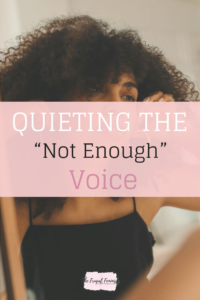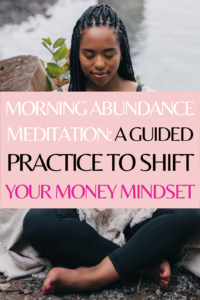
You don’t have to wait until you have grey hair to be a property owner. You also don’t have to be a millionaire to get started in the real estate game. You also don’t have to come from money, wait on a man, or know every detail about real estate investing, or pursue real estate investing as a full-time gig to win in the real estate world. In this three part Young Landlords Series, I get to share the stories of three young women whose financial accomplishments in real estate dispel myth after myth about what is possible.
Our first young landlord is Dr. Jasmine Zapata, an author and medical physician from Milwaukee, Wisconsin. She is 30 and bought her first property four years ago at the age of 26.
Young Landlord at a Glance
Name: Dr. Jasmine Zapata
Age at time of first property purchase: 26
Relationship Status: Married
Current Age: 30
Years in the Real Estate Industry: 4
Real Estate Investment Strategy: Owner-occupy
Primary properties of interest: multifamily homes; vacation homes
Current City: Milwaukee, Wisconsin
Location of properties: Milwaukee, Wisconsin
Full-time or part-time pursuit of real estate: part-time
Number of properties owned: 2 (duplex and vacation home)
There are various ways to build wealth. Why have you chosen to use property ownership to create yours?
As a physician, one of my major passions is preventive medicine, which is a field of medicine that involved looking at upstream factors and social determinants of health outcomes. There were so many patients and families I would see come into the hospital with both minor and major medical conditions directly related to poverty. After a while, I got sick of not being able to do anything about it and having to deal with the aftermath of conditions related to poor living situations, lack of finances, lack of food resources, stress from financial struggles, and other burdens. Real estate was a way that I could learn to break the chains of poverty off my own generation line and eventually help teach others to do the same.
Real estate was also a way that I could have the freedom of time and could create a lasting legacy for my family. And most importantly, it was a potential way for me to create a passive stream of income, especially because I use the “buy and hold” strategy when making purchases.
Tell us the story of how you purchased your first property.
I was getting tired of paying our landlord every month. He owned multiple properties on campus (while I was a medical student), and I was always amazed at that. When I calculated how much money I had paid to him over the last 4 years of medical school I was shocked to discover it was almost $50,000. I thought to myself, “I could have had a quarter of a house paid off my now.”
I was able to buy my first property, a duplex, with no money down due to a special loan created for physicians. Even if you’re not a physician, there are tons of loans out there for veterans, military families, first-time home owners, and other special situations. A quick online search will give you more insight into which loans for which you’ll be eligible.
In addition to applying for this special loan, I applied the strategy of owner occupying as a means to get started, which was very helpful because the money I received covered the money I would have been spending on the mortgage for other ventures and future real estate purchases.

What beginner advice do you have for someone enthusiastic about real estate but clueless as to where to start?
Here’s the advice I would give.
- Sign up for Bigger Pockets. This website changed my life. They have educational materials, podcasts, articles, mentorship, and purchasing opportunities. This site will give you a great overview of the field of real estate investing and will also help you choose what particular niche/strategy you want to get started with.
- Leverage the occupy-own strategy. There are special loans that only require 3-5% down through the government if you owner-occupy the home which means you live in one of the units yourself. One of the best ways to maximize this hack is to set your eyes on purchasing a multifamily unit. You get into the home for a low down-payment and then in a few years you can move out and then rent all of the units.
- Be proactive. Contact one person per week who is successful in the field of your choice. Call, email, or simply ask to chat by phone about how they got involved in real estate and to learn more about their business. Don’t forget to keep a log so you can reach out to these people in the future.
- Create a six-month action plan. Once you’ve created a six-month action plan, set weekly and monthly goals on how you will achieve that goal. Write the goals down somewhere you can see them every day. One of those goals should definitely be to attend your local Real Estate Investment Association (REIA) meetings. They are in every major city and usually the first couple visits are free.
- Make your credit shine and save smartly. This step is often overlooked but it is an important one. For some, this can take years, but this is a very important step and one that you’re in complete control of. When it comes to buying your first property, I’ve found this to be true: the more money have you saved and the better your credit, the easier it will be to get started and the more options you will have regarding what field of real estate you want to get into.
How does technology help you with payments and tenant support?
When my husband and I first started, we would personally collect the rent checks. But I soon learned that automating the process of rent collection is so much easier. Now, we use an online rent payment system. It saves a lot of time. I also do a lot of email and electronic communication with my tenants as well. I’m also in the process of learning to utilize virtual assistants to help with some of my future property acquisitions and other deals.
The world needs more landlords like Dr. Zapata who view owning homes and providing quality housing for people in her community as form of social justice. She hasn’t used her demanding full time career and pressing family obligations as an excuse for not pursuing her entrepreneurial goals. In fact, she’s used them to guiding force to inspire her to think bigger and take action.
I’m hoping her story has done the same for you.










